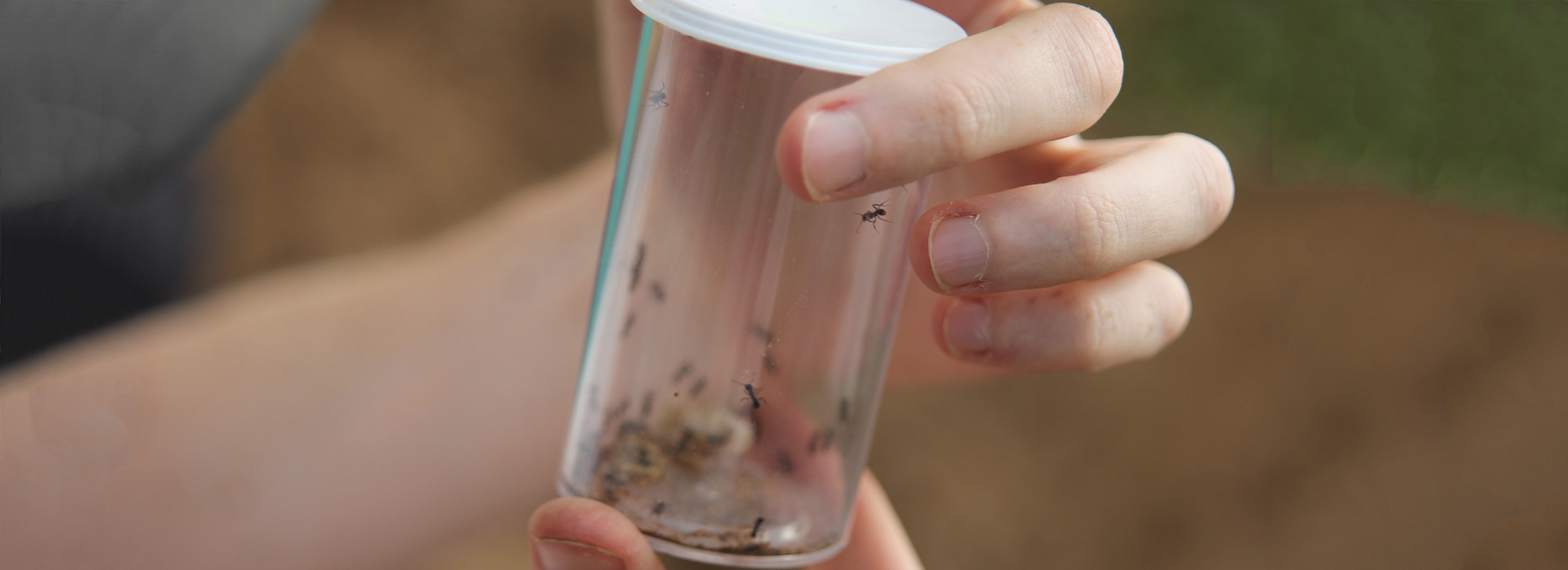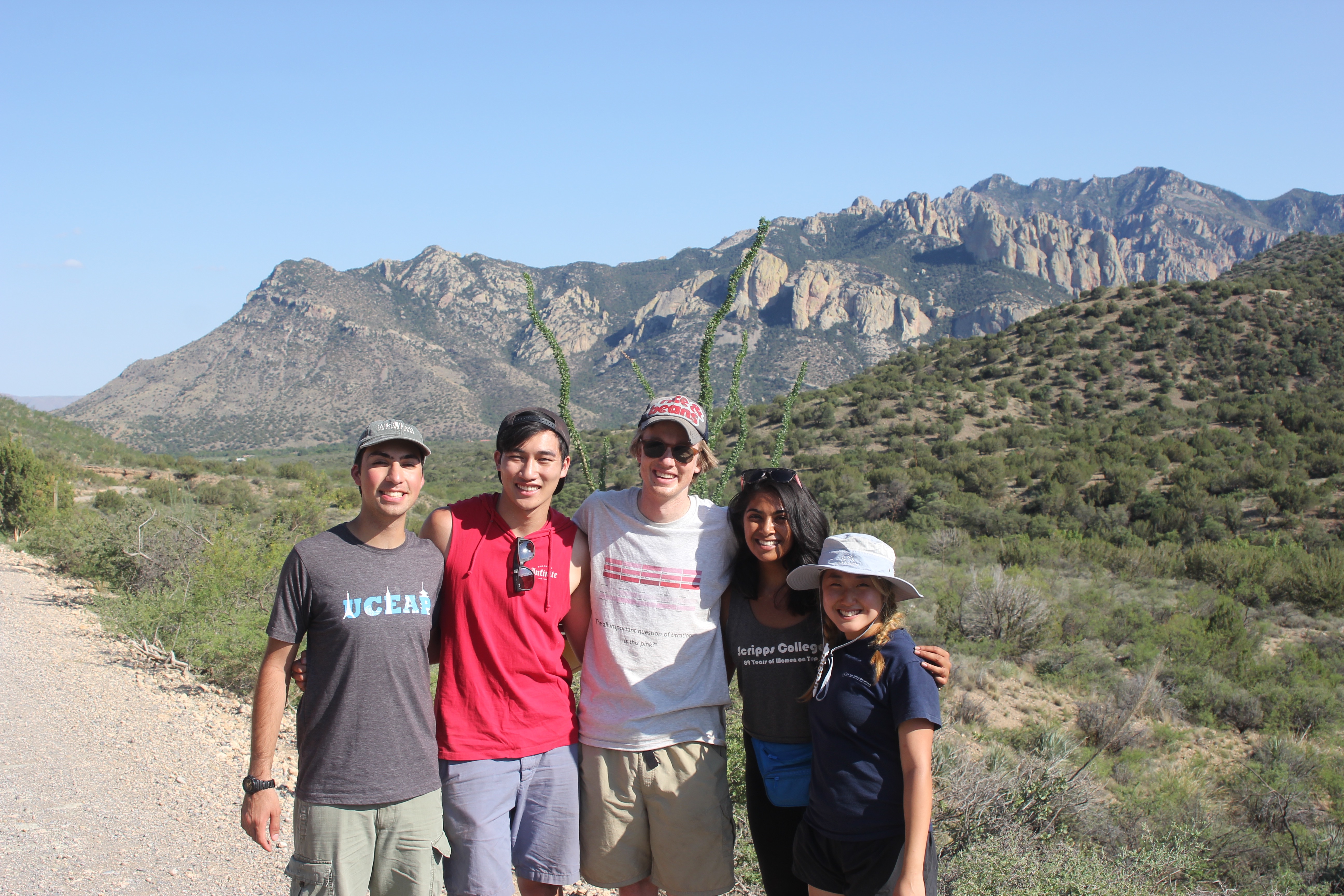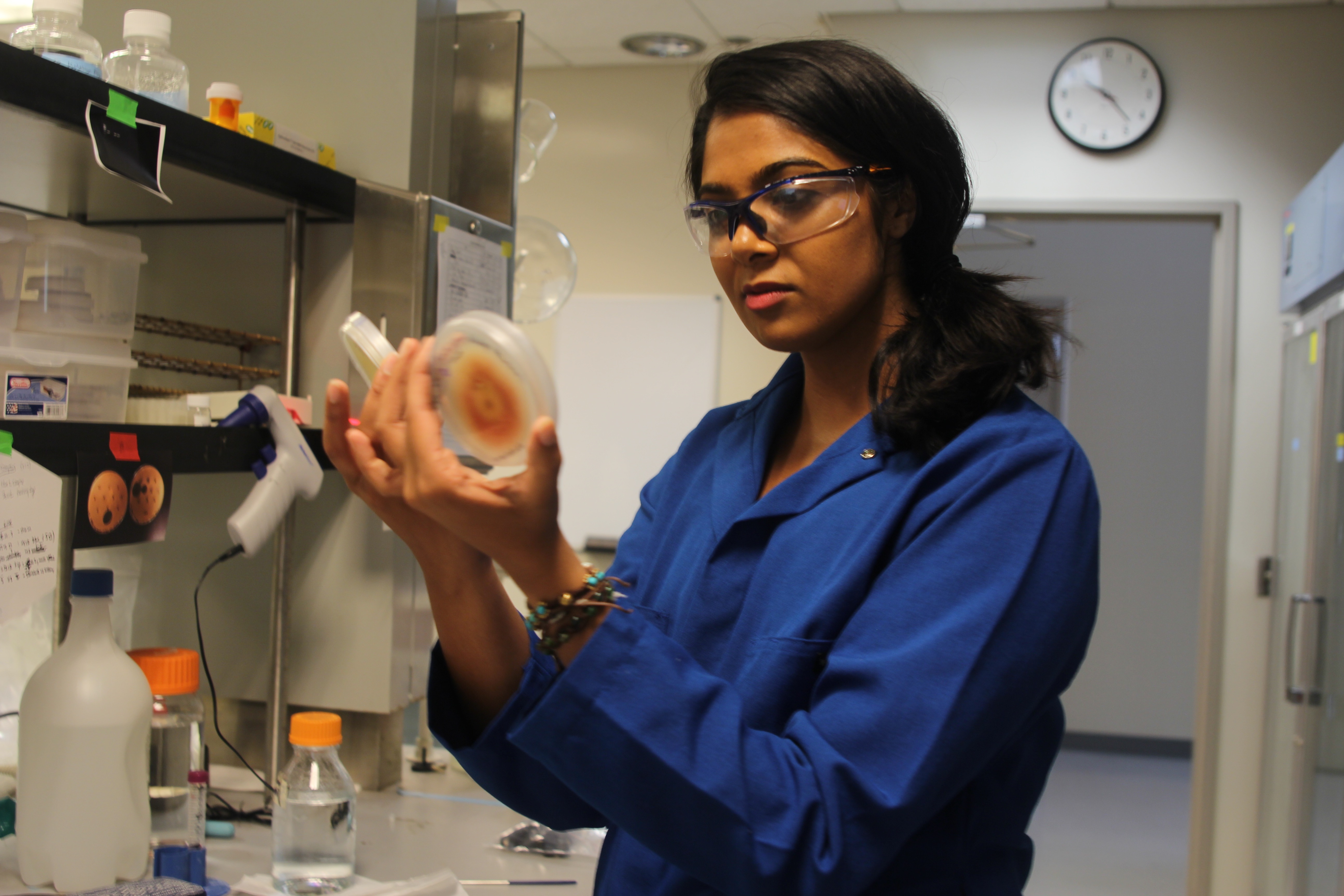
For many Southern California residents, the rising thermostat marks the beginning of a months-long battle to keep summer ants at bay.
For Ethan Van Arnam, assistant professor of chemistry in the W.M. Keck Science Department of Claremont McKenna, Pitzer, and Scripps Colleges, summer is the perfect time for hunting them.
In June and July, Professor Van Arnam, with help from his team of four students, led a research project studying antibiotic-producing bacteria. Recent research suggests that many animals—including humans—are hosts for beneficial, “defensive,” bacteria, and that these bacteria, through the antibiotics that they make, help their animal host fight disease-causing pathogens.

The Van Arnam lab uses insects, especially ants, as a model system to help understand these relationships. Leafcutter ants and their relatives are known to carry antibiotic-producing bacteria that help suppress disease in their underground nests, but not much is known about what the actual antibiotics are. Van Arnam and his team isolate bacteria off of these ants, collected in New Mexico and Arizona, grow the bacteria in the lab at Keck, and assess what antibiotics they are making.
“The way that the ants benefit from these antibiotics isn’t so different from the way that we use antibiotics in medicine, so we think there’s a reasonable chance that the molecules we find will have medical relevance,” Van Arnam says.
While many students leave Scripps for summer jobs and internships, travel, or simply much-needed rest and relaxation at home, a small cohort remains on campus to continue their work with professors on long-term scientific research projects.
“Summer research is really rewarding in that students have enough time to dig into a project and make it their own,” says Van Arnam, adding that “Keck Science is a lively place in the summer months—for example, every Friday several students present their research to the Keck community as part of a ‘brown bag lunch’ seminar series.”
Krithika Rao ’19 has been a student researcher in the Keck Science Department for two semesters. She sees summer research as an intensive, but rewarding, experience that can’t be replicated once the academic year begins:
“During the school year, research becomes a really minor part of how I spend my time, between classes, part-time jobs, and other extracurricular activities,” says the biochemistry major, who is also minoring in Asian American studies. “Over the summer, however, research is the only responsibility that I have, so I can set up experiments a lot faster and get quick results. Seeing our tests work provides the encouragement and proof that we are heading in the right direction, which makes us excited to keep moving forward.”

The pre-med hopeful adds that the skills she is learning at Keck have broad applications for her future career field. “We like to joke that one of the most valuable skills we learned on the collecting trip was how to use a shovel, since we were digging 4- and 5-foot holes in the desert for 10 hours a day,” says Rao. “But in reality, we became experts in a lot of techniques and protocols that are very commonly used in organic chemistry and molecular biology,” she says. In fact, students in Van Arnam’s lab ran polymerase chain reactions to amplify segments of DNA for sequencing, grew up cultures of bacteria on petri dishes, and used chemistry techniques like column chromatography and mass spectrometry—to name a few.
While Van Arnam may reprise his desert field work next summer, for the fall, he plans to start assessing the microbes that they cultured off of the ants on this summer’s collecting trip. “Students will continue to be involved in all aspects of this work,” says Van Arnam, “including fieldwork collecting insects and isolating bacteria from them, microbiology work growing these bacteria in the lab, and chemistry work purifying and characterizing antibiotics and other active molecules. There’s a lot to do!”

